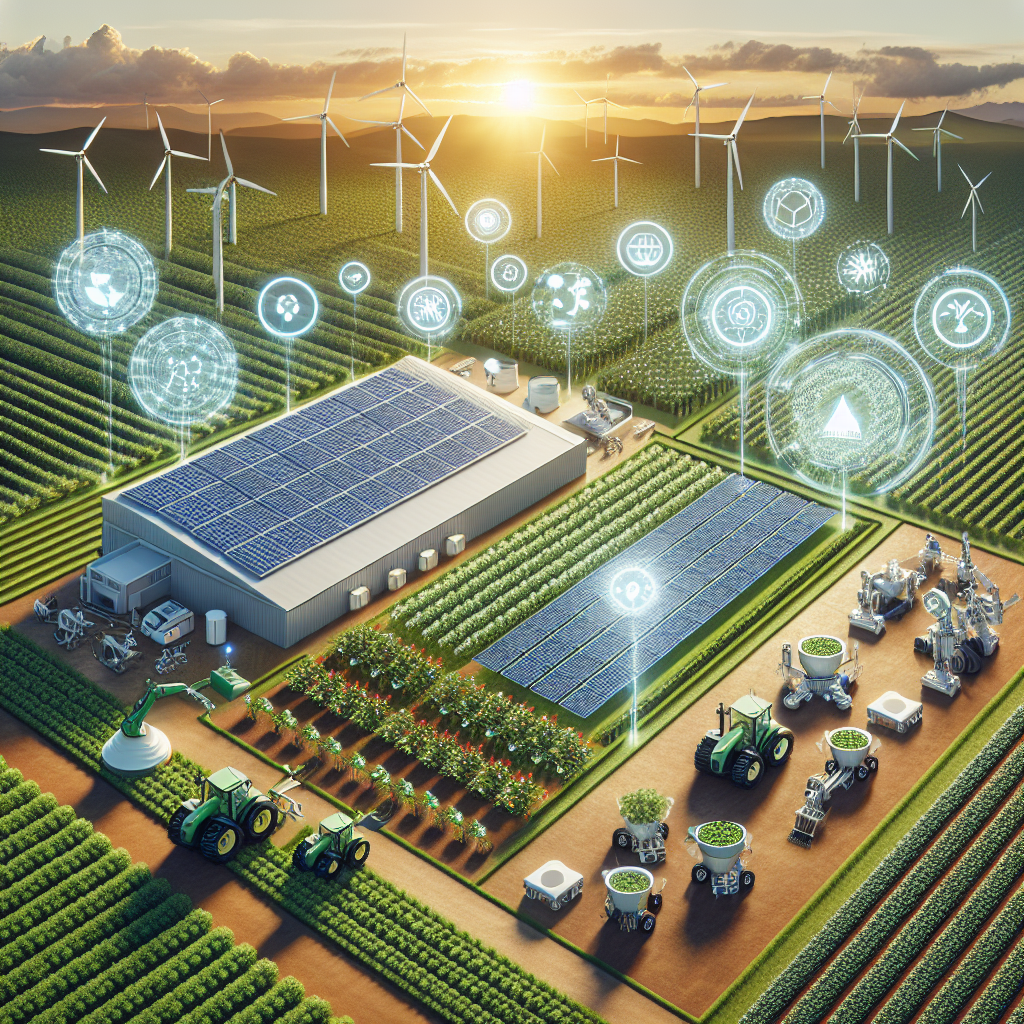The Impact of AI Development on Sustainable Agriculture
Introduction
As the world population continues to grow, the demand for food is increasing at an unprecedented rate. This puts immense pressure on the agriculture industry to produce more food while also minimizing its impact on the environment. Sustainable agriculture is the key to meeting the growing demand for food while ensuring the long-term health of our planet. Artificial intelligence (AI) is revolutionizing the agriculture industry and has the potential to greatly enhance sustainable practices.
AI in Agriculture
AI refers to the simulation of human intelligence in machines that are programmed to think and learn like humans. In agriculture, AI technologies such as machine learning, computer vision, and robotics are being used to improve crop yields, reduce waste, and minimize environmental impact. AI can analyze large amounts of data to help farmers make better decisions, optimize resource use, and increase efficiency.
One of the major benefits of AI in agriculture is its ability to monitor and predict crop health. By using drones equipped with AI algorithms, farmers can quickly identify areas of a field that may be experiencing issues such as pests, diseases, or nutrient deficiencies. This allows farmers to take targeted action to address these problems before they spread and negatively impact crop yields. AI can also help farmers optimize the use of water and fertilizers by analyzing data on soil moisture levels, nutrient content, and weather patterns to determine the optimal timing and amount of inputs.
AI is also being used to improve the efficiency of harvesting and processing crops. Robotic systems equipped with AI algorithms can autonomously harvest crops, sort produce, and pack products, reducing the need for manual labor and increasing efficiency. This not only helps farmers save time and money, but also reduces the environmental impact of agriculture by minimizing waste and energy consumption.
Impact on Sustainable Agriculture
The development of AI technologies is having a significant impact on sustainable agriculture. By enabling farmers to make more informed decisions, optimize resource use, and increase efficiency, AI is helping to reduce the environmental footprint of agriculture. AI can help farmers minimize the use of pesticides and fertilizers by targeting inputs only where they are needed, reducing the risk of pollution and harm to wildlife. AI can also help farmers reduce water usage by optimizing irrigation systems and monitoring soil moisture levels to ensure that crops receive the right amount of water at the right time.
In addition to reducing resource use, AI can also help farmers improve soil health and biodiversity. By analyzing data on soil composition, nutrient levels, and crop rotation patterns, AI can help farmers implement practices that promote healthy soils and diverse ecosystems. This can help to increase the resilience of agricultural systems to climate change and other environmental challenges.
Overall, the development of AI technologies in agriculture is helping to make farming more sustainable by improving efficiency, reducing waste, and minimizing environmental impact. By harnessing the power of AI, farmers can produce more food with fewer resources, helping to feed a growing population while preserving the health of our planet.
FAQs
Q: How is AI being used to monitor crop health?
A: AI technologies such as drones equipped with sensors and cameras can fly over fields to collect data on crop health. AI algorithms analyze this data to identify areas of a field that may be experiencing issues such as pests, diseases, or nutrient deficiencies.
Q: How can AI help farmers optimize resource use?
A: AI can analyze data on soil moisture levels, nutrient content, and weather patterns to help farmers determine the optimal timing and amount of inputs such as water and fertilizers. This helps farmers minimize resource use and reduce waste.
Q: How does AI improve the efficiency of harvesting and processing crops?
A: Robotic systems equipped with AI algorithms can autonomously harvest crops, sort produce, and pack products, reducing the need for manual labor and increasing efficiency. This helps farmers save time and money while reducing waste and energy consumption.
Q: How does AI help farmers improve soil health and biodiversity?
A: AI can analyze data on soil composition, nutrient levels, and crop rotation patterns to help farmers implement practices that promote healthy soils and diverse ecosystems. This can help increase the resilience of agricultural systems to environmental challenges.
Q: What are the benefits of using AI in agriculture?
A: AI technologies can help farmers make more informed decisions, optimize resource use, increase efficiency, and reduce environmental impact. By harnessing the power of AI, farmers can produce more food with fewer resources, helping to feed a growing population while preserving the health of our planet.

